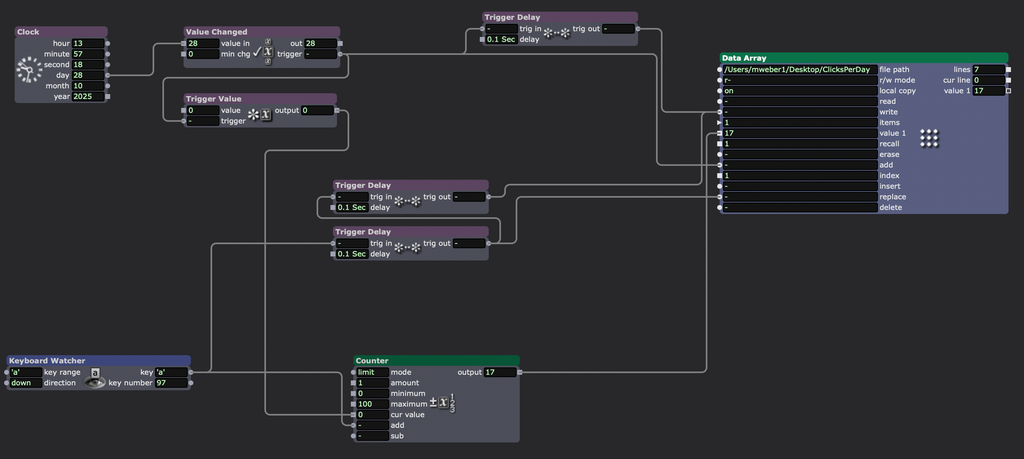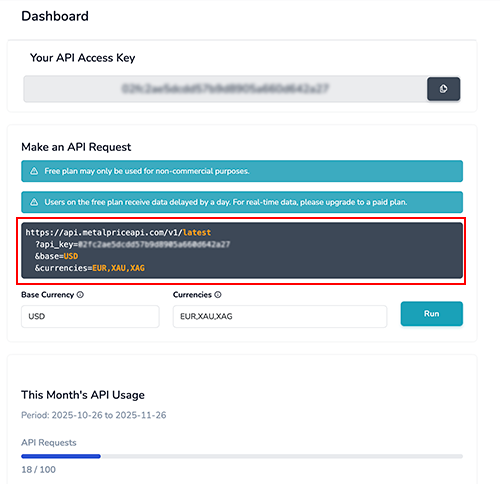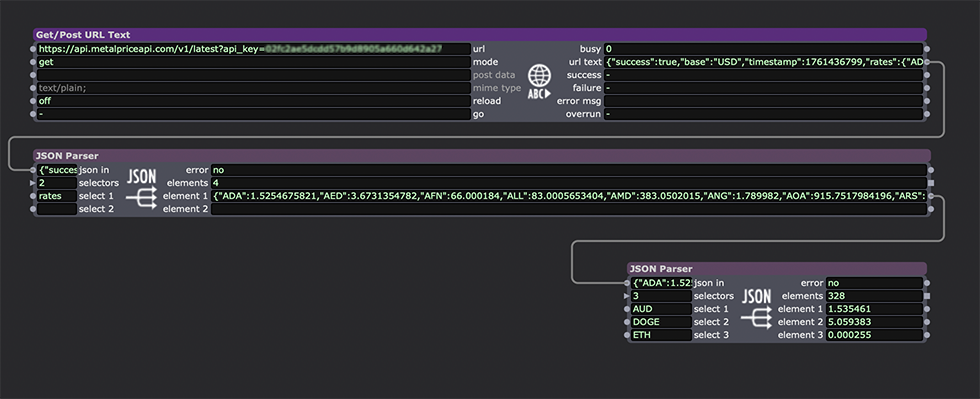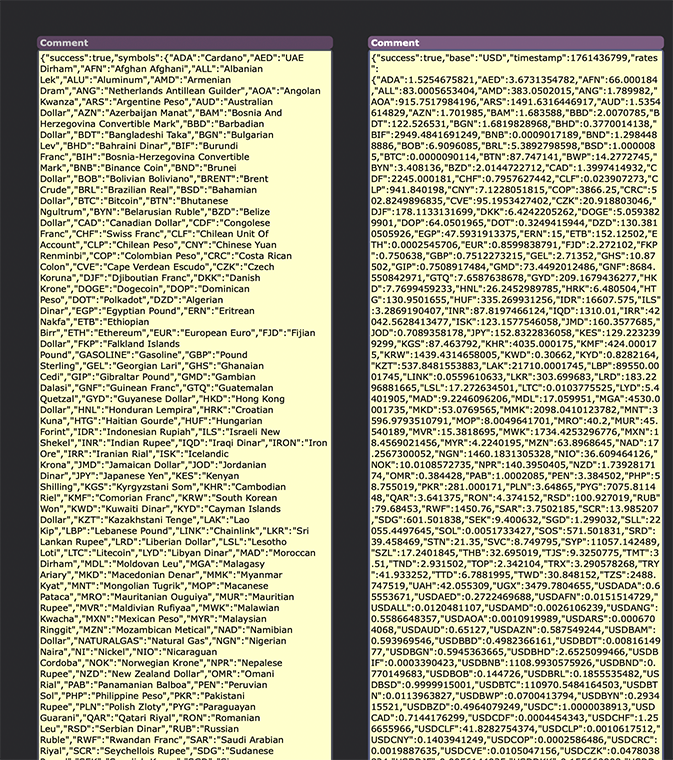This would be my approach: define the path to a file that will be automatically generated when a write operation is triggered. If the day changes, the counter will reset to zero and a new line will be added to the top of the text file.
If the file is saved in a folder that is synced with a cloud service you can read it from anywhere.

Best Michel
Hopefully the previous steps assist in getting you a successful request from metalpriceapi.com?
What do you mean by the notification process?
Sorry to hear you are having difficulty getting a successful data stream. I am going to assume you have indeed signed up for the Metalpriceapi.com subscription. When I signed up the access URL was preconfigured in the notification process and required copying and pasting into the ‘Get URL text’ actor module. BUT the URL success is sensitive to additional spaces, gaps and invisible characters in the address string. The following screen grabs demonstrate how unseen gaps and spaces may need to be deleted to 'tighten up' the URL address before use after copying from the Metalpriceapi.com website.
1. Below is a screen grab of the metalpriceapi.com dashboard that provides my api_key. The grey box outlined in red is preconfigured with my api_key in the dashboard so I can directly copy the address string here.

2. BUT when cut and paste it also includes spaces and gaps and hidden elements that appear to make the copied text unsuccessful in Isadora.

3. It will work if you clean up the address by deleting any spaces including extra tab or return spaces at the end of the address string.

I have tried to figure it out but when I use this method I just get this message "User did not supply an access key or supplied an invalid access key. Please sign up for a FREE API Key at metalpriceapi.com"?
Hi all
I've created a patch for an installation where I want to extract the amount of times a certain key is pressed and ideally want to store this info somewhere other than in Izzy, key is currently linked to a counter actor.
Thoughts on a very simple light touch way for someone to access just that information for each day the installation is open would be appreciated. It doesn't need to be access remotely (although that would be a bonus) but the machines running the install aren't currently on the internet or any sort of remote network.
Ideal scenario would be someone opens a spreadsheet or word doc on the install machine that has populated itself with how many times a particular button has been pressed each day.
Thanks in advance!
Simon
Hi @pellemolde,
The website link I sent through provides a ‘quickstart’ suggestion that provides a url:
https://api.metalpriceapi.com/v1/latest?api_key=[API_KEY]
Once you have registered for the free subscription and received the api key you will be able to complete the url. Copy the api key you receive into the url where it has the place holder [API_KEY].
In your Isadora Scene Editor, place a ‘Get URL Text’ actor module. Paste the url address from metalpriceapi.com into the ‘url’ input. Initiate the 'get' request by clicking the 'go' trigger input of the 'Get URL Text' actor module.

If the request is successful you will get a stream of data in JSON format. To extract the data you want use the JSON Parser actor module in a cascade until the specific data arrives at an output. At this point you can then route the data to activate the other elements in the Scene Editor.
You will notice in the screen shot here that the data is identified via a 3-4 letter symbol ie. AUD, DOGE, ETH. These are the id for exchange rates for Autralian Dollar, Doge Coin and Ethereum. If you look at the URL we have entered into the 'Get URL Text' - you will notice that it has the word 'latest' in the URL and then in the received JSON data the selector word 'rates' near the beginning of the data stream. I have copied the selector id name 'rates' into the JSON Parser actor module to isolate the data associated with that selector title. The next JSON Parser has identified 328 elements and these become the selector names on the input side of the JSON Parser actor module, these are the individual data points each identified by an acronym or symbol - I have chosen just three of the available selector names to access their individual data.
Go back to the metalpriceapi website and you will find guides and other URL request options - I think I saw mention of a gold price URL there.
You will have to spend time to understand the acronyms and symbols used in the data stream to identify the information that you want to use.
To get a clearer idea of what data you are working with you can copy the entire data stream from the Get URL Text actor module and past it into a Comment actor module to expose it and visually find the selector element names/symbols and other id information. Below is a partial screen grab of the data streams from metalpriceapi copied into Comment actor modules. The column on the left is from a request URL:
https://api.metalpriceapi.com/v1/symbols?api_key=[API_KEY]
and the column on the right is from a request URL:
https://api.metalpriceapi.com/v1/latest?api_key=[API_KEY]

Okay but how would I go about implementing the website you have linked in isadora?:)